Support for an Indigenous voice to parliament ‘a mile wide but an inch deep’ as poll shows yes vote is slipping

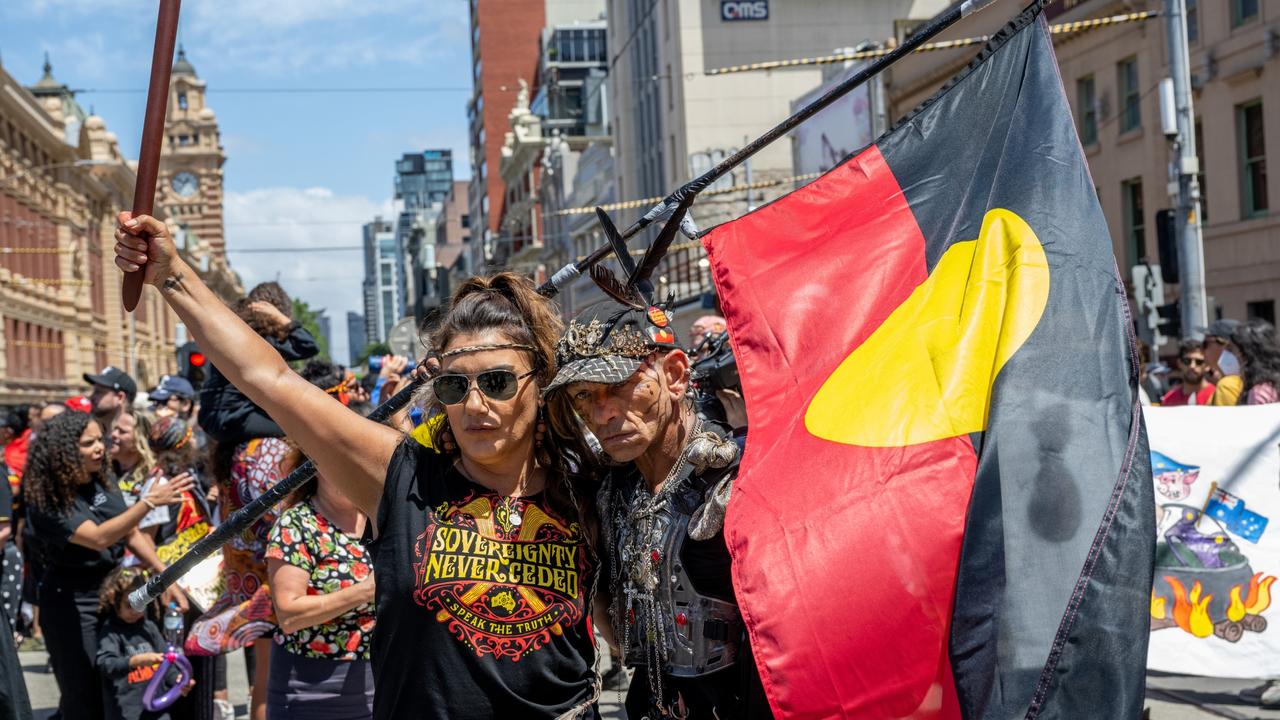
The raw figures are 39 per cent opposition to the voice, 18 per cent undecided and just 44 per cent support.
What’s more, according to the pollsters, some states are shifting from Yes to No. This matters because a successful referendum has to be carried by a majority of the states and a majority of voters overall.
This tends to confirm last month’s Morgan poll, showing a seven percentage point drop in the Yes vote to 46 per cent; and a nine percentage point rise in the No vote to 39 per cent. In two states, Queensland (46-41) and in South Australia (50-39), the No vote was actually in front. Only in Victoria, said Morgan, was there still majority support for Yes. As well, the Essential poll has Yes down six points to 59 and No up six points to 41 since February. This polling is remarkably similar to polling on becoming a republic, five months out from the 1999 referendum, which ultimately went down in every state and 55-45 nationally.
From the beginning, No campaigners have been telling me that poll support for the voice was “a mile wide but an inch deep”.

No campaigners say voter concerns that the voice may be divisive and that there’s not enough detail are being intensified once people are clear that the voice involves changing the Constitution – which, unlike legislative change, is permanent.
As well, especially among the overseas born, voters are starting to ask why this generation of Australians – who have never been responsible for mistreating Indigenous people – should have to make it up to current generations of Indigenous people.
This will get only worse as more questions emerge that voice proponents can’t (or won’t) answer. And while just about everyone would be happy to see Indigenous people formally recognised in the Constitution as the First Australians, it’s far from clear that a super-majority of voters are prepared to give the government what amounts to a blank cheque for a change that’s so much more than that.
The government’s insistence that the voice is no more than giving Indigenous people the polite hearing they obviously deserve on matters affecting them is starting to unravel, as the scale of the intended indigenisation starts to become more clear. The voice is just the first demand of the Uluru Statement from the Heart “voice, treaty, truth” to which the Prime Minister says the government is committed “in full”.
Last week, in Queensland, the state Labor government passed legislation enabling treaties to be concluded between the government and up to 150 local Aboriginal groups. This week, as reported in The Australian, the head of the Mithaka Aboriginal Corporation in western Queensland said a treaty between his body and the Queensland government should mandate the right to veto mining projects on traditional land, even though such a right is not available to anyone else.
Under Australian law, sub-surface minerals belong to the Crown and landholders can negotiate over access but have no right to block the exploitation of resources for the country’s benefit, and that of state and federal budgets. Of course, miners already have to negotiate extensively with native title holders if they want to mine on traditional lands, but the head of the Mithaka corporation says Aboriginal people now need an “actual say, not just a tokenistic say” over developments in an area not much smaller than Tasmania.
What’s more, the Queensland minister responsible for treaty negotiations said treaties could be worth hundreds of millions of dollars apiece, reflecting, he said, the devastating impact of British colonisation on the state’s Indigenous people.
Typically, he neglected to mention the much greater upside of settlement for most Aboriginal people; namely, health and education, the rule of law and all the facilities of modern life. Notwithstanding the reality that if it wasn’t the British, it would be fanciful to think that Australia would be unsettled today, two centuries on from when the First Fleet arrived.
This treaty talk in Queensland is a good indicator of what to expect everywhere should the voice pass.

On Sydney radio this week, Yes 23 campaign head Dean Parkin accepted that Aboriginal people had “great expectations” of the voice and had been “talking about treaty for a long time”, and that what happened afterwards would “play out naturally”.
As Parkin said, Aboriginal people “won’t just settle for symbolism”. For instance, the objective of the Mithaka corporation, according to its head, is to be “self-sustaining” and to be able to “employ its (own) people”. That could include ownership of all the mining, pastoral and tourism businesses to which it currently contracts workers. But that would turn them into an Indigenous version of state-owned enterprises, that are run to employ people, not to make a profit or to deliver a service.
It would be the advent of a quasi-independent Indigenous socialism throughout remote Australia, with the taxpayer, inevitably, required to sustain it. One of the members of the Queensland government’s new Truth and Treaty body, former social justice commissioner Mick Gooda, says it’s “about sovereignty” and that “just about every treaty party” would push for joint decision-making on elements of government services, such as education, health, youth justice and housing. It could even extend, he said, to police needing to ask local elders to arrest suspects; meaning that, depending on your race, the law of the land applies, or it won’t.

This is an early tremor of the massive change coming down the track. Essentially, as the now ubiquitous reference to First Nations shows, it’s about unwinding two centuries of the sovereignty of the Crown and ensuring that no big decisions can be made in this country without the consent of the Aboriginal people who, it’s now said, never ceded sovereignty and, while definitely “invaded”, were never really conquered. That’s “consent”, not advice, a virtual veto, which tells you why the No vote is increasing as people start to work this out.
If there’s any upside here, a referendum at least gives every Australian a say on what has happened by stealth until now. And anyone who doesn’t like where things are headed – from the permanent flying of the Aboriginal flag coequally with the national flag, to the now routine Indigenous welcomes – notwithstanding all the moral pressure that will be brought to bear, in the privacy of the ballot box they will at last have a chance to vote No.
So far, the government is resisting all entreaties to moderate the voice proposal to give it a better chance of success.
At some point, though, Anthony Albanese will have to face up to the fact his proposal for maximalist change is dividing the country and looks increasingly likely to fail. He can’t say he wasn’t warned.

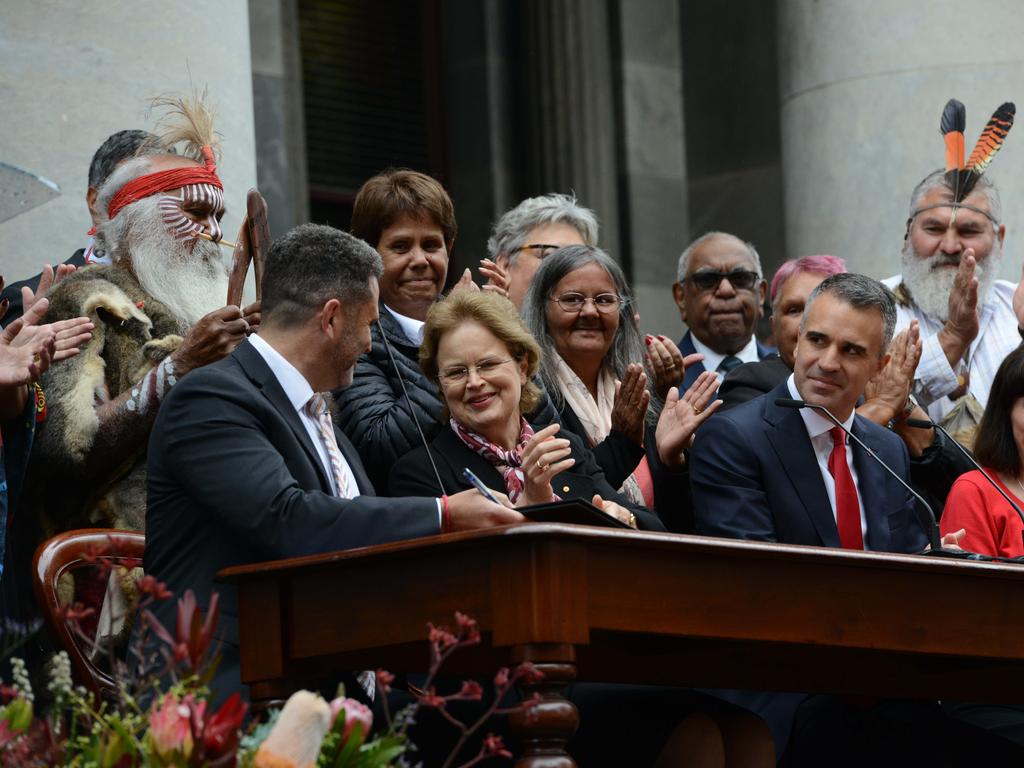
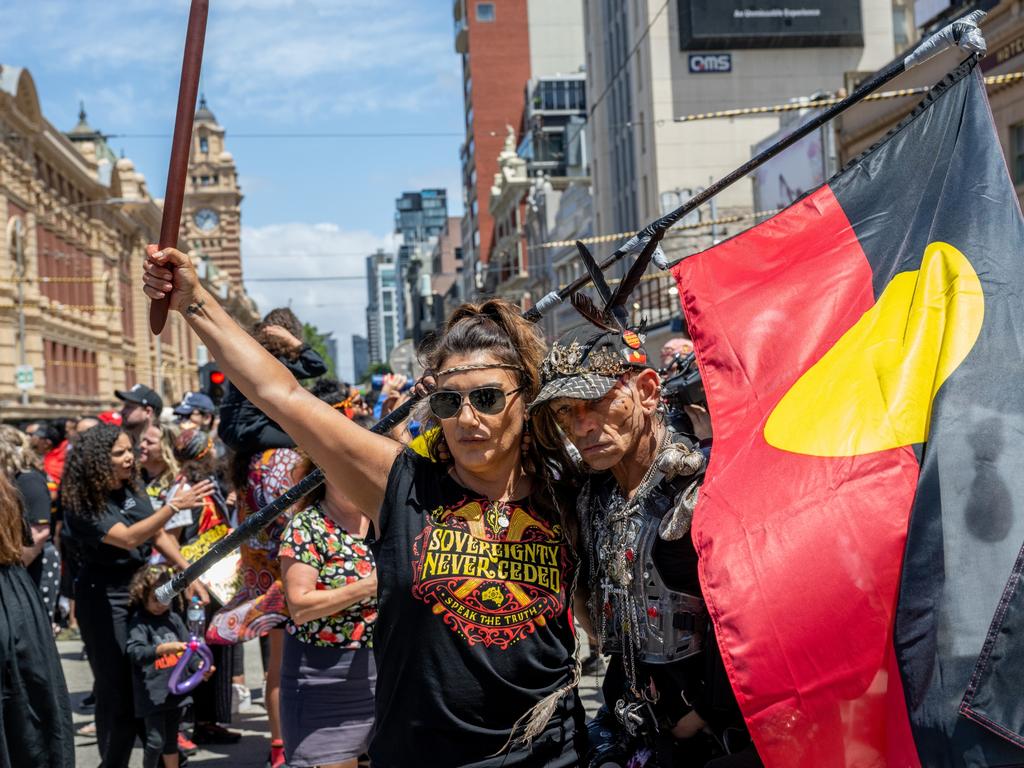
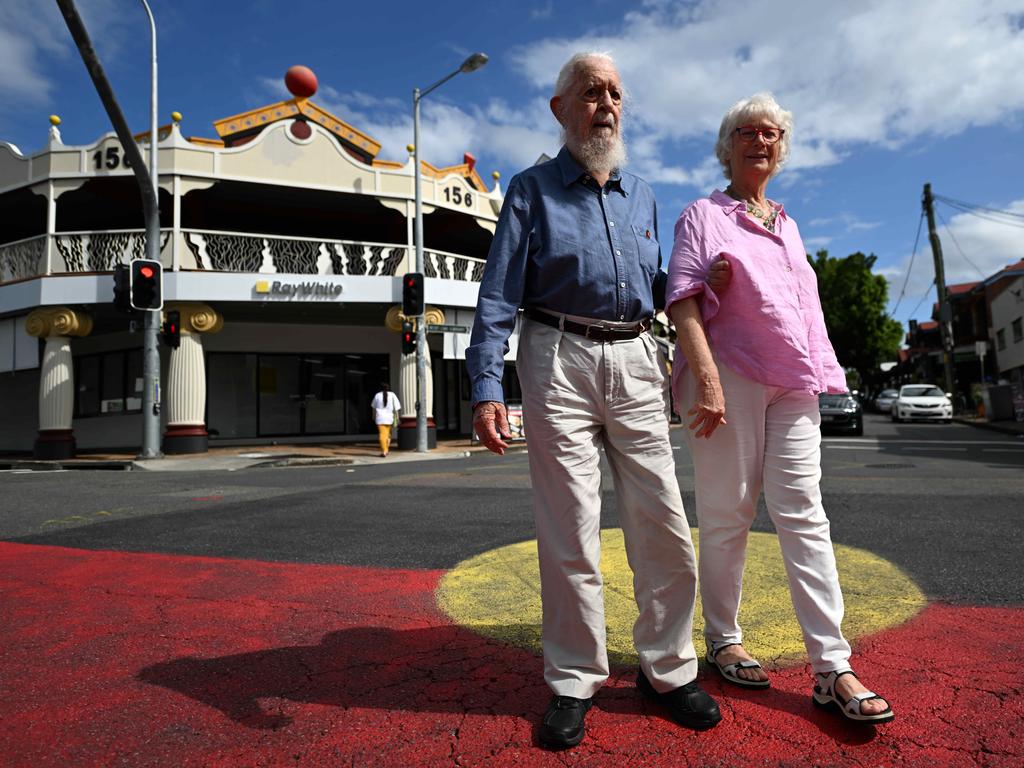
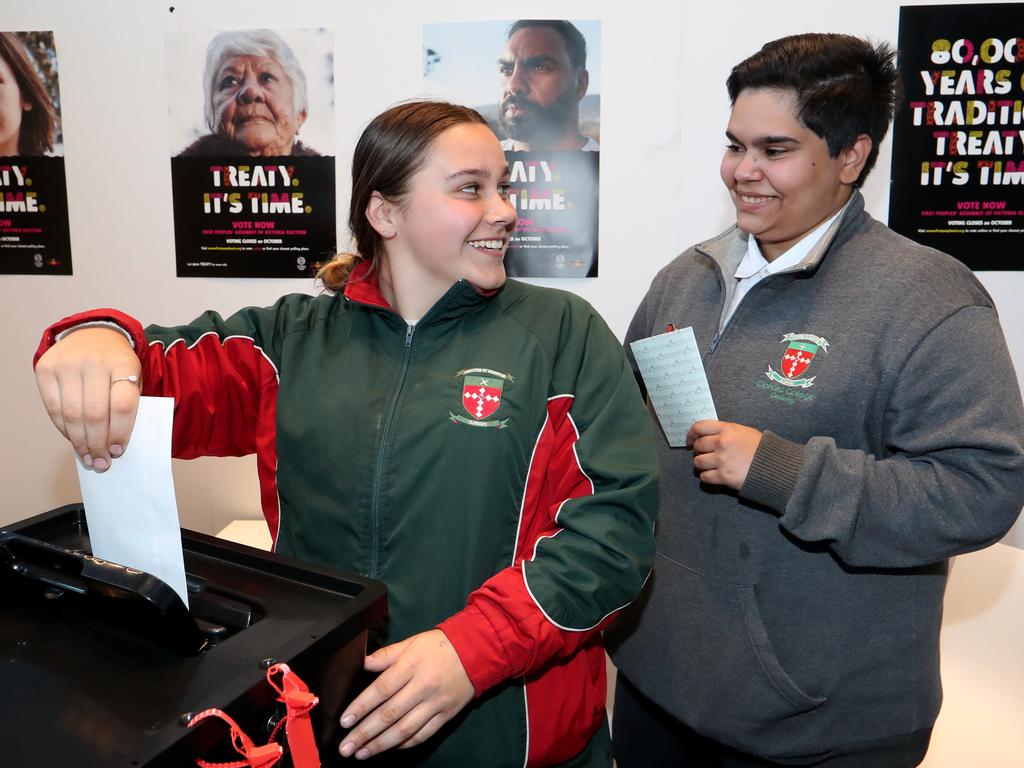


The campaign for an Indigenous voice to parliament to be entrenched in the Constitution is now in deep trouble. The latest Resolve polling shows the Yes vote has dropped from 64 per cent late last year, to 58 per cent earlier this year, to just 53 per cent now.